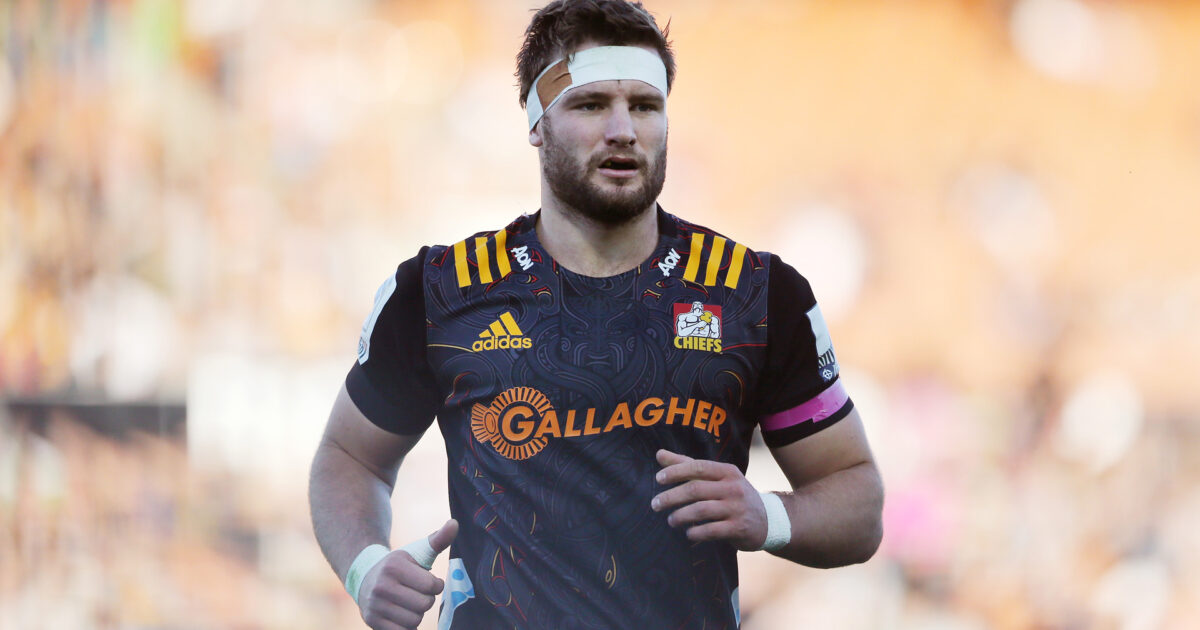'It was a tough call': The biggest snub from New Zealand's North v South clash

Lachlan Boshier’s cruel omission from the North squad speaks to New Zealand rugby’s rich loose forward depth and the All Blacks‘ desire to harness more physicality from this area of their game.
Impressive Chiefs flanker Boshier was the major causality as the North and South teams were revealed for Saturday’s inter-island match in Wellington.
Halfbacks Te Toiroa Tahuriorangi and Mitchell Drummond; hookers Kurt Eklund and Andrew Makalio, props Alex Fidow and Daniel Lienert-Brown, Blues wing Mark Telea, Hurricanes flanker Reed Prinsep and Highlanders midfielder Sio Tomkinson also missed the cut.
Of that group, though, Boshier’s absence is the main talking point.
Boshier, often in tandem with All Blacks captain Sam Cane, was one of New Zealand’s form loose forwards this season. He was a constant menace at the breakdown where he frequently won telling turnovers while his defensive work rate was off the charts.
The fact he stood out in a winless Chiefs side that went 0-9 to end their campaign says everything about his efforts.
Boshier ultimately missed out to Ardie Savea and Akira Ioane who start at seven and six respectively, and Dalton Papalii who will come off the bench for the North side. Hoskins Sotutu also returns from a knee injury to start at No 8. That dynamic quartet should have the advantage over the South’s Shannon Frizell, Tom Christie, Tom Sanders and Dillon Hunt.
New All Blacks selector and North Island head coach John Plumtree admitted leaving Boshier out was one of his most difficult decisions.
“I pulled Lachlan aside and told him he’s not in the 23 and he’s disappointed and rightly so the way he’s consistently played for the Chiefs this year,” Plumtree said of the 25-year-old Taranaki product. “If you look at the group it’s a tough loose forward trio to break into and that can happen.
“He’s got a couple of things he’s going to work on and he has a bit of direction around that. I’m sure he’s going to get many opportunities above Super level in the future.
“Anything can happen in the loose forwards there’s a high rate of injury in that position. Lachlan is in that mix. When we talk about sevens in this country his name is mentioned amongst the selectors all the time and that’s the right place for him to be.
“It’s similar with Du’Plessis Kirifi and Dillon Hunt. In this country we always develop really good sevens through our franchises so it’s a tough position to be in.
“It was a tough call but there were many tough calls there’s many good players not here.”
https://www.instagram.com/p/CEpx2ElAwgQ/
While Plumtree did not want to elaborate on specific elements Boshier has been asked to work on it’s likely to be adding more size and physicality to his repertoire.
England exposed the All Blacks in the World Cup semifinal last year by dominating the physical collisions. That loss, and the manner of it, still stings. Lessons will be absorbed.
In that match the All Blacks were steamrolled up front. To avoid a repeat they recognise the need to harness brutal big men in their loose forwards. With Savea and Cane locked in the likes of Frizell, Sotutu, Ioane and Papalii bring significant bulk and power to their domains.
All are capable of fulfilling the enforcer roles the All Blacks need from their pack.
Sotutu hasn’t played for one month after a knee injury ruled him out of the backend of the Blues season but, prior to that, his form off the back of the scrum turned heads – so much so that England coach Eddie Jones and Fiji counterpart Vern Cotter were keen to lure him into their national set ups.
The match up between Beauden Barrett and Richie Mo’unga at No 10 will continue to hog headlines but for Plumtree, a former hardnosed loose forward, there is no hiding which area he is keen to witness.
“Those boys haven’t played together so I’m looking forward to seeing what that looks like,” Plumtree said of his loose forwards. “Hoskins has got a lot of natural ability. He’s really strong and has a good work rate too. We’ve been really impressed.
“He hasn’t played for a while so he will be a bit rusty. He’s a quiet character but confident as well. I said to him ‘you’ll be right for half a game’ and he said ‘nah I want a bit more than that’. He wants to put his hand up and impress and play a game that’s probably going to be a higher level of intensity than Super Rugby.”













































